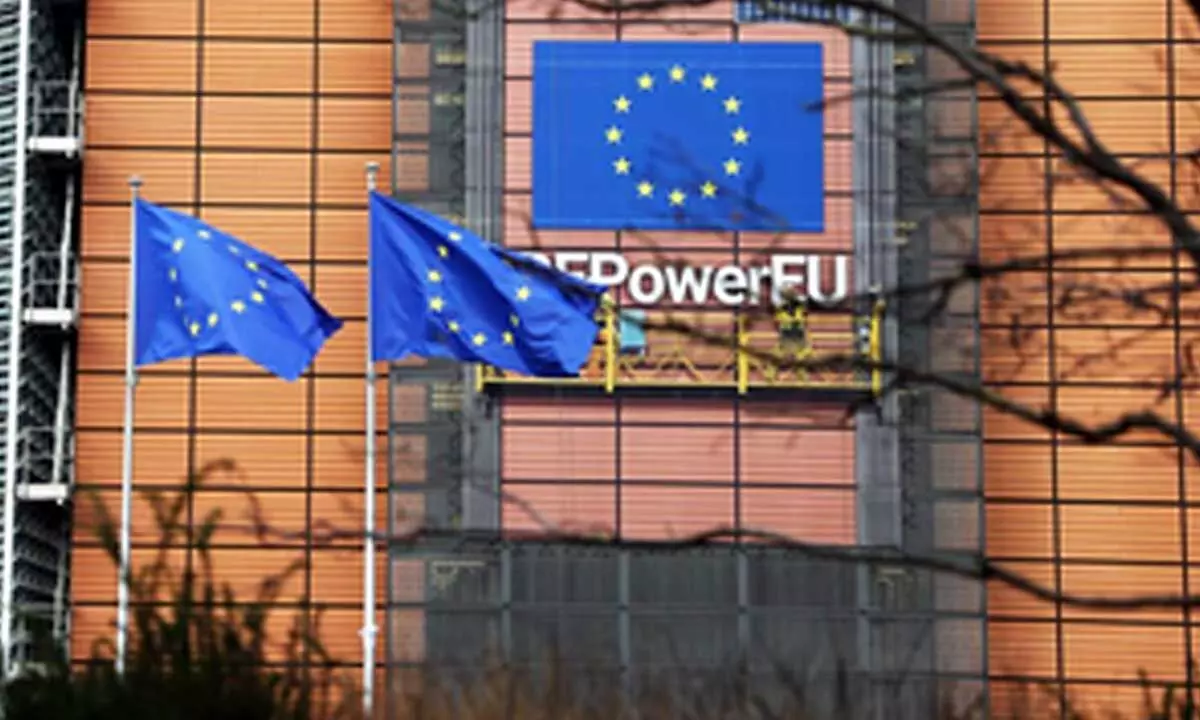Eurozone's inflation rises to 2.4 per cent in December: Eurostat
Share :

The eurozone's annual inflation rate for December of last year stood at 2.4 per cent, up from November's 2.2 per cent, according to a flash estimate released by Eurostat.
Kyiv: The eurozone's annual inflation rate for December of last year stood at 2.4 per cent, up from November's 2.2 per cent, according to a flash estimate released by Eurostat.
The price of services is currently driving the eurozone's inflation, with the services sector inflation standing at 4 per cent, up from 3.9 per cent in November, reports Xinhua news agency.
It is followed by food, alcohol, and tobacco, with an annual inflation rate of 2.7 per cent in December, unchanged from the previous month.
The price of non-energy goods recorded an inflation rate of 0.5 per cent year on year, down from November's 0.6 per cent.
The inflation rate for energy moved from negative to positive, standing at 0.1 per cent in December.
Among eurozone countries, Croatia led with an annual inflation rate of 4.5 per cent in December, followed by Belgium at 4.4 per cent and Estonia at 4.1 per cent.
This marks the third consecutive month of rising inflation in the eurozone. After falling to 1.7 per cent in September, inflation has steadily increased, reaching 2.4 per cent in December.
"Examining the drivers of the higher inflation rate, it's important to note that the downward impact of energy prices is now petering out," said Peter Vanden Houte, chief economist at ING for the eurozone.
"This upward trend isn't over yet. Natural gas prices are now more than 50 per cent higher than a year ago, and oil prices are no longer falling. As such, energy will be a significant upward risk to inflation in the first quarter," he added.
Vanden Houte also warned of a potential rise in agricultural commodity prices, which could lead to higher food prices, as well as the risk of a trade war, which could impact the price of goods.
Services inflation remains a concern. Both the PMI survey and the European Commission's sentiment indicator suggest that upward price pressures in services remain significant due to still-strong wage increases and higher price-setting by services companies.
Vanden Houte predicted a further increase in the eurozone's inflation during the first quarter of 2025. He expressed scepticism about the European Central Bank's (ECB) forecast of declining inflation, which was based on negative energy inflation, no longer the case in December.
"We still expect the ECB to continue cutting interest rates, but it is unlikely that the pace of loosening will accelerate," said Vanden Houte.















